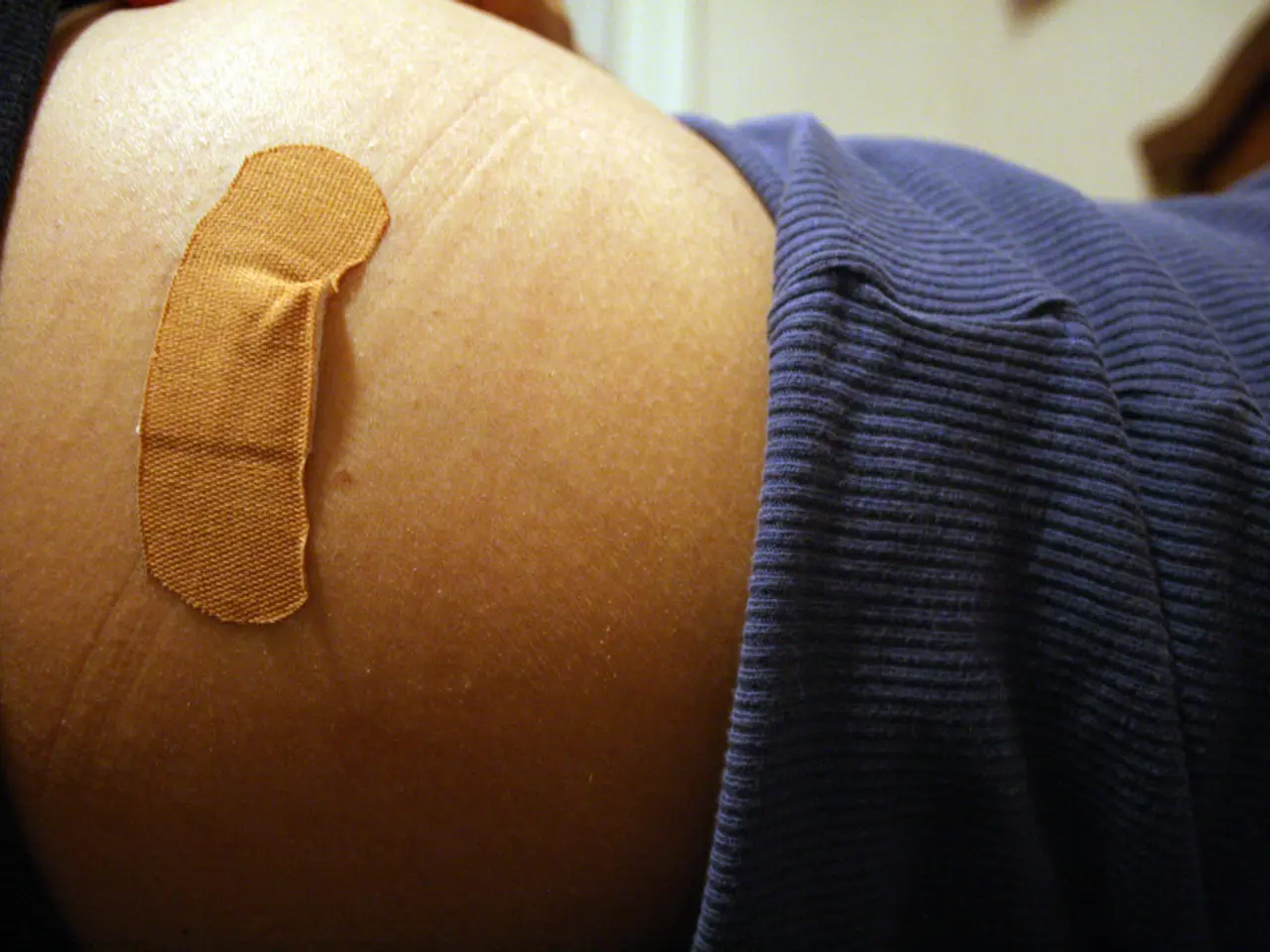Coronavirus Leads to Blood Clot Formation: Understanding the Link Between COVID-19 and Coagulopathy
In the ongoing battle against COVID-19, a lesser-known complication has emerged: blood clots. Recent research suggests that the virus causes an abnormal immune-coagulation interaction, leading to potentially dangerous clots.
Blood clots can be dangerous as they may not dissolve on their own, stop blood flow, or travel to other parts of the body. In severe cases, they can cause life-threatening conditions such as heart attacks, strokes, and pulmonary embolisms, which occur when blood clots travel to the lungs.
The SARS-CoV-2 virus is suspected to cause blood clots primarily through a process called thromboinflammation or immunothrombosis. This process involves the virus binding to fibrinogen, a key structural component of blood clots, accelerating the formation of dense, fibrinolysis-resistant fibrin clots that are highly inflammatory and obstruct blood vessels.
Additionally, the virus infects endothelial cells, increasing the expression of adhesion molecules that promote platelet adhesion and aggregation, key steps in thrombus formation. Activated platelets then release molecules that recruit immune cells, intensifying inflammation and clot stability.
Researchers are still unsure why COVID-19 causes blood clots, but theories include the virus attacking endothelial cells and triggering clotting, or the virus causing a hyperactive inflammatory response.
Treatments for COVID-19 associated thrombosis focus on anticoagulation and monitoring coagulation status. Anticoagulants, especially low molecular weight heparin, are widely used to prevent and treat these clots. Monitoring their effectiveness may involve testing like anti-factor Xa or thromboelastography, with emerging evidence supporting the latter as a rapid, point-of-care method to assess coagulation status in patients receiving anticoagulants.
In addition to anticoagulants, targeting platelet activation and inflammation pathways may be another approach, although specific therapies directly addressing spike protein-fibrin interactions or integrin modulation are still under investigation.
Prevention methods include prophylactic anticoagulation for hospitalized COVID-19 patients at risk of thrombosis, managing COVID-19 with appropriate anti-inflammatory and antiviral treatments to reduce viral load and immune overactivation, and monitoring coagulation parameters in patients with COVID-19 to identify those at increased risk for clotting events and adjust treatments accordingly.
It's important to note that while blood clots can be a serious complication of COVID-19, they are also a natural response to injury facilitated by several chemical reactions in the body. However, in the context of COVID-19, these reactions can lead to potentially dangerous clots.
People with COVID-19 who have other risk factors for blood clots, such as being older, having overweight, high blood pressure, diabetes, or taking medications that increase the risk of blood clotting, may be more prone to blood clots. Deep vein thrombosis (DVT), which occurs when a blood clot forms in a vein deep in the body, can lead to pulmonary embolism, amputation, or death.
In summary, COVID-19 causes blood clots by promoting abnormal fibrin clot formation that is resistant to breakdown, triggering platelet activation and immune cell recruitment leading to thromboinflammation. Treatments focus on anticoagulation and monitoring coagulation status, supplemented by controlling inflammation and viral infection. Researchers are testing new therapies to help treat and prevent blood clots, including comparing standard doses of blood thinners with higher doses in critically ill people and testing the effects of more potent medications, such as tissue plasminogen activator.
- Alongside the battle against COVID-19, Alzheimer's, a neurological disorder, continues to be a concern for many.
- Stroke, another serious medical condition, often needs immediate medical attention due to its life-threatening nature.
- Researchers are also investigating the relation between COVID-19 and respiratory conditions like asthma and chronic obstructive pulmonary disease (COPD).
- The coronavirus pandemic has highlighted the importance of maintaining Digestive Health, as symptoms such as loss of appetite or diarrhea can be indicative of infection.
- Maintaining Eye Health, especially during prolonged screen time due to remote work, becomes crucial in today's scenario.
- Hearing problems, often related to aging, could be exacerbated by COVID-19, as the virus targets the nervous system.
- Workplace-Wellness programs have gained significance with the rise of chronic diseases like diabetes, high blood pressure, and autoimmune disorders.
- The SARS-CoV-2 virus is not only a threat to Cardiovascular Health, but it can also worsen existing conditions such as heart diseases and thrombosis.
- Mental Health is another crucial aspect that needs attention during the COVID-19 pandemic, with symptoms such as anxiety and depression becoming prevalent.
- Men's Health encompasses a wide range of issues, including prostate health, and is affected by factors like stress and lifestyle choices.
- Skin Care becomes essential in maintaining overall health and wellness, as the virus can manifest in various skin conditions.
- Therapies and Treatments for COVID-19 are being extensively researched and developed, including the use of CBD for its potential anti-inflammatory and antiviral properties.
- Good Nutrition is an essential part of managing both COVID-19 and various Chronic Diseases, as it boosts the immune system and promotes overall health.
- Aging can lead to various health issues, such as weakened immunity, memory loss, and reduced physical fitness, making older adults more vulnerable to COVID-19.
- Women's Health involves various aspects, including reproductive health, menopause, and breast health, and is affected by factors such as hormonal changes and lifestyle choices.
- Parenting during the pandemic poses unique challenges, as parents navigate the additional stresses of remote work, homeschooling, and managing their children's health and safety.
- Weight Management is crucial for maintaining overall health and reducing the risk of various health issues, including diabetes, high blood pressure, and cardiovascular diseases.
- Fitness and Exercise are essential for maintaining a healthy lifestyle and boosting the immune system, but they require careful modification during the pandemic due to health concerns.
- Sexual Health is an important aspect of overall health and wellness, with concerns such as sexual dysfunction and the spread of sexually transmitted infections becoming more prevalent.




